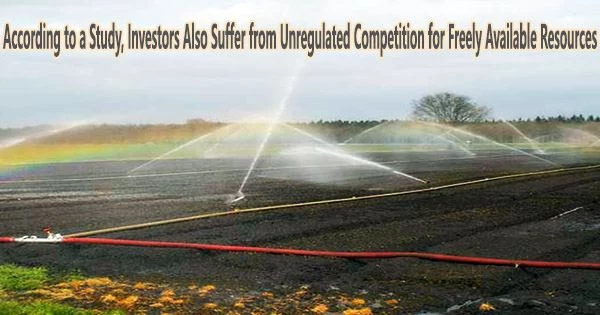The state of freely available resources, such as fish stocks, water, or air, can drastically deteriorate in the absence of rules for their usage. In economics, this is referred to as the “Tragedy of the Commons.”
For her research on this subject, Elinor Ostrom became the first woman to be awarded the Nobel Prize in Economics in 2009. The question of how to stop this “tragedy” that Ostrom posed some 20 years ago still holds true today.
Game theory deals with situations where several agents are in competition with one another, each striving to maximize their own profit. One speaks of a “Nash equilibrium” if players cannot increase their returns further.
The “Tragedy of the Commons” is a game theoretical scenario in which the actors do not compete directly, but indirectly: If someone takes a piece of a common pie, there will be less for everybody else.
Instead of investigating how to avoid the “Tragedy of the Commons,” Claudius Gros from Goethe University’s Institute for Theoretical Physics examined the resulting Nash equilibrium, with unexpected results: Each party will receive a portion of the order 1/N if a common good is distributed among N interested parties more or less evenly. Yet, it is still necessary to subtract the associated investment expenditures.
According to Gros’ estimates, the actors’ engagement rises in an equilibrium state until the investment expenses practically equal the worth of the resources that a single investor can get for themselves. Mathematically, the theoretical physicist was able to show that the final profit of the individual investor scales as 1/N².
According to Gros’ analysis, the original expectation that investors would each receive a proportionate piece of the resource is still valid. This does not, however, result in an aggregate return of the same proportion because there are fewer investors.
The severe decline in net profit is referred to by Gros as “catastrophic poverty,” which suggests that unchecked competition pushes the individual player nearly to the profitability threshold, or the subsistence level.
Similar to this, Gros was able to demonstrate how actors might work together to prevent catastrophic poverty. The classical consequence of cooperation is a net profit equal to the number of investors in simple power.
The investigations’ findings suggest that the “Tragedy of the Commons” can actually do a lot more harm than previously thought. Unrestricted access not only results in the resource’s potential for overuse, a subject on which many earlier studies have concentrated. However, when simply focusing on increasing their personal earnings, investors suffer themselves.
Mathematically, Gros was able to demonstrate how technological development accelerates this process and how, in the end, either all or the vast majority of participating investors experience extreme poverty. If anything, only a few investors the oligarchs stand to gain more.
















